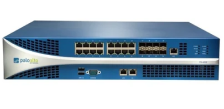Overview & Key Highlights of the Program
In today's world, where the digital landscape is evolving at a high pace, at the same time methods of cyber crime are also evolving at the same speed. Resulting in cyber security also as an ever-changing field. This makes it crucial for IT professionals to stay updated with the latest technologies and skills in this field. Nowadays, Any professional with the skills of both ethical hacking and cybersecurity is a crucial asset for the organization.
An Cyber Security and Ethical Hacking course equips you with the skills required to identify, evaluate, and reduce risks in the network of enterprises. A perfect way to embark on a cybersecurity and ethical hacking journey is Network Bulls’ Cyber Security and Ethical Hacking Combo Course.
Network Bulls, the best ethical hacking and cybersecurity Institute, provides an ethical hacking and cybersecurity course online as well as offline, designed by experts, and is a perfect combination of theoretical and practical learning. Experience intense and dynamic learning with our ethical hacking and cybersecurity training, and become a proficient IT professional.
Pre-requisite: Basic Networking Knowledge
Facilities:
Small Batch Size
Courseware/All required study material (Cisco Press books, Workbook/Lab manual, Tasksheet etc
24x7 Lab Access
2 months lab access in online mode.
One time revision is available in online mode.
Additional facilities in case of Classroom training
Airport Pick up & Drop
Accommodation Assistance
In-House Data Center Facility
Additional Services On Demand at nominal price (SIM card, laptop, Data card)
Unlimited lab access in offline mode.
One time revision is available in online mode.
What You Will Learn: Modules
Each module is designed to ensure students gain a deep understanding of core concepts while applying them in real-world scenarios.
Module 1
Linux Fundamental

Module 2
CEHv13

Module 3
Wireshartk

Module 4
IBM QRadar

Devices Used

Physical Devices
Window Laptop with minimum 8 GB RAM.

Virtual Devices
- Wireshark
- Splunk
- IBM QRadar
- Kali Linux
- Metasploitable
Training Plan
Group/Online
Training Plan
- Duration 75 Days
- Available Training Modes Online/Classroom
Let's Build Your Career Together
Free Career Advice: One Click Away!
Get Started Today
Cyber Security and Ethical Hacking Course Training
Group Training - Classroom
Note - The NB training fee doesn't include Cisco exam fees.
One-on-One Training Plan
Note - The NB training fee doesn't include Cisco exam fees.
Ethical Hacking+Cyber Security Course and Training-Group - Online
Note - The NB training fee doesn't include Cisco exam fees.
Group Discounts
10% off per head for groups of 2 students.
15% off per head for groups of 3 students.
20% off per head for groups of 4 students.
25% off per head for groups of 5 or more students.
How to Enroll?
Our Expert Councellor will Resolve all doubts and queries you still have and will assist you personally to get enrolled. To get a dedicated councellor



 Thanks for Reaching Out!
Thanks for Reaching Out!